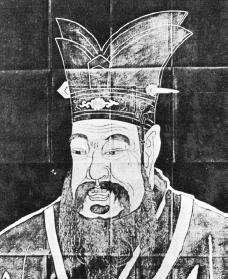- East Asia’s “Post-Confucian” societies
- Chu Hsi (Zhu Xi) emails
- MM as Confucian, Neo-Confucian and Post-Confucian
- Confucianism in 21st-century Chinese academic discourse
APPENDIX 1: Confucius and the Classic Texts
APPENDIX 2: Confucianism in early 20th-century China

Confucianism in early 20th-century China
As an official creed of state, Confucianism collapsed with the Qing Dynasty in 1911. As an intellectual orthodoxy it was demolished eight years later by the May Fourth Movement. As a diffuse set of values that frame instincts and govern personal behavior, it remains embedded in the hearts and minds of almost every Chinese, despite ― and perhaps because of ― the experience of Communism.
After 1949 the Communists denounced Confucius and all that he stood for as feudal. Certainly Marxism, the new creed of state, was at odds with the old traditions. It emphasized struggle, conflict and perfection in the future, whereas Confucius had insisted upon cosmic and social harmony, moderation and the glories of the past. Yet these major differences of principle were not always reflected in political behavior.
The Party’s elevation of role models ― in this case “labor heroes” ― deemed worthy of emulation, and the obviously related belief that people could improve and cultivate themselves, owed something to the Confucian approach. At the very least Chinese Communism shared with Confucianism the idea that education can transform an individual’s outlook and behavior. However, Confucianism came under savage attack during The Cultural Revolution.
Red Guards razed every symbol of Confucius in Qufu, the Sage’s hometown in Shandong, and elsewhere in the country. The offensive later took a bizarre turn. In 1974 the Gang of Four staged a campaign to “criticize Lin Biao, criticize Confucius.” The real target of this odd pairing was neither the Sage nor Lin Biao, Mao’s former comrade-in-arms. Instead it was the dying Zhou Enlai, whom radicals accused of wanting to return to old ways.
During the late 1980s and the 1990s the Party adopted a more respectful view of Confucius, arguing that some of his doctrines, though expounded in the sixth century B.C., still had relevance for contemporary China. As a result the Qufu mansion, temple and burial ground of the Kong family, the Sage’s descendents, were restored and opened to the public. The new message of moderation had the additional advantage of bringing in money.
To some extent the Party’s new appraisal of Confucius was related to the growing appeal of Asian values. To some extent it was a reflection of the fact that faith in Marxism and socialism was fading fast. People, and perhaps more particularly their leaders, needed something to believe in and rally around. Confucianism seemed a good candidate, if handled carefully. It offered a balm to an authoritarian state in ideological crisis.
Adventurous mainland Chinese philosophers have advocated Confucianism as a solution to an intellectual and moral crisis in the West. Participants at a seminar in 1995 were told that the problem with western culture was that science and religion were no longer compatible. “If westerners’ morals and their values of life,” said one of the speakers, “were based on another humanism rather than on Christianity, this contradiction would not arise”